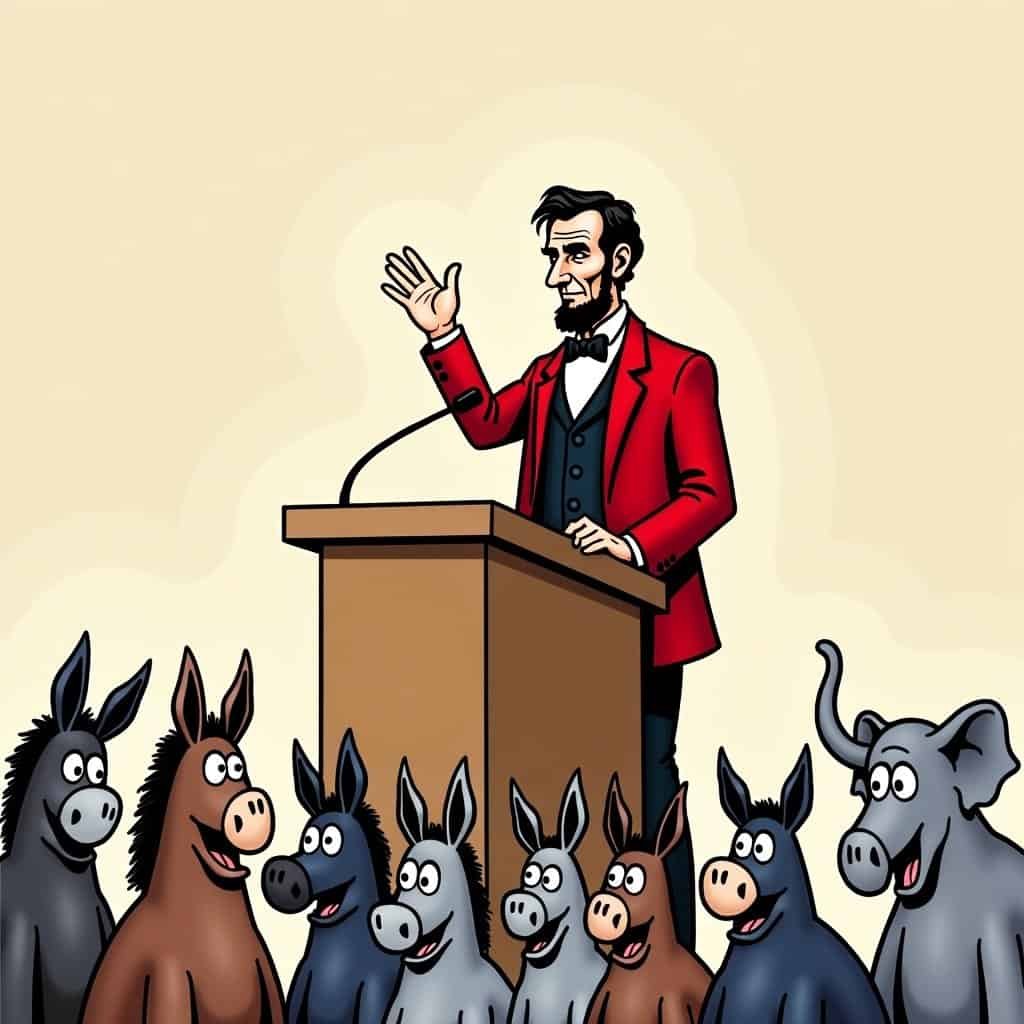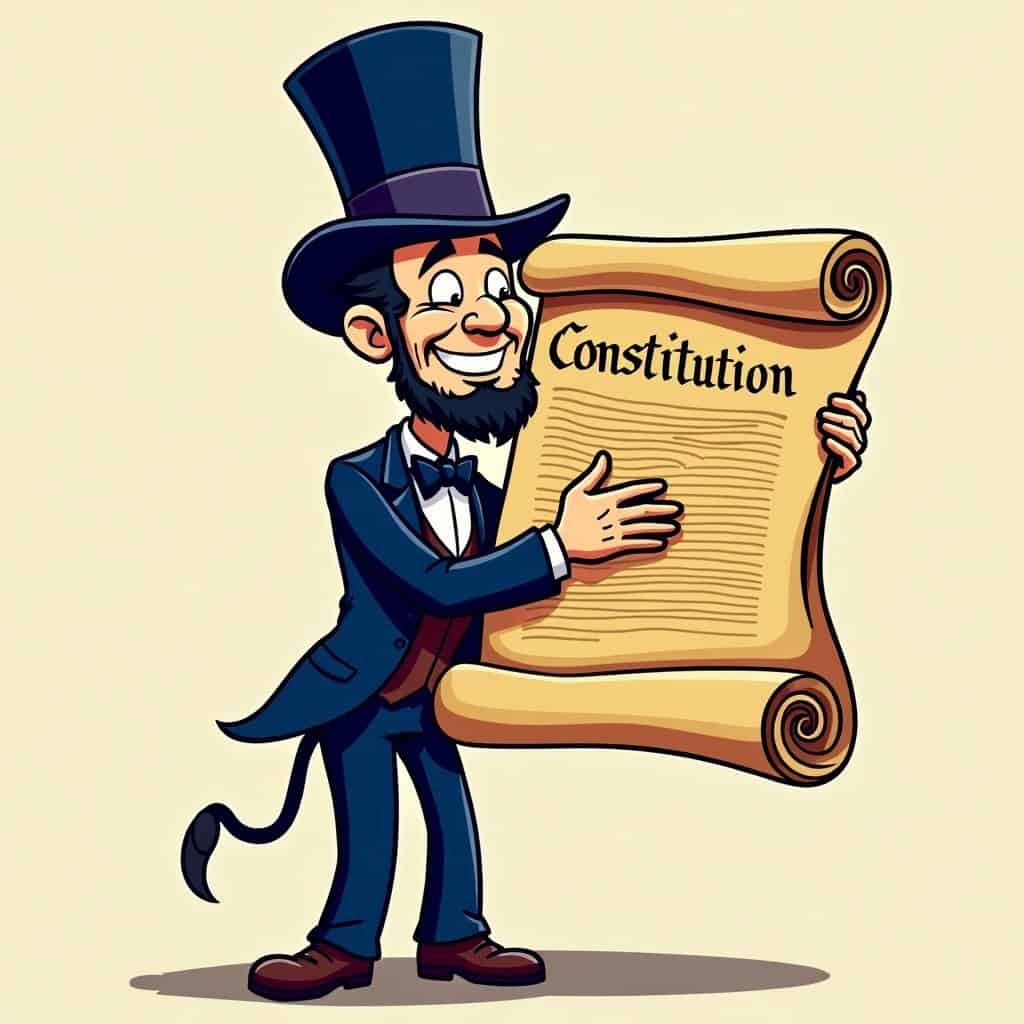Now, let me tell ya a story about a man called Abraham Lincoln—honest as the day’s long and as complicated as trying to fit an elephant into a Mini Cooper. While he’s often seen wearing that tall hat of national unity, some say he had a few tricks up his sleeves for states’ rights protection, too. Yes, you heard that right!
Picture the Civil War era, where the states were fighting like cats in a bag over this whole Union breakup business. Lincoln, at the helm, had a job that makes cooking a Thanksgiving turkey look easy. Sure, his main goal was keeping the Union together, and in his Gettysburg Address, he went on about a nation ‘conceived in Liberty,’ but wait a minute—doesn’t liberty sound like states handling their own business? A little nod to individual freedoms, I’d say.
Federalism and Lincoln’s Balancing Act
Our founding fathers were pretty proud of this thing we call federalism. It’s a system where local issues stay in the neighborhood and the federal government doesn’t stick its nose where it doesn’t belong. Lincoln, the man with a grand plan, didn’t necessarily want to take away the states’ power but to keep the Union solid, kind of like wanting your cake and eating it too. It’s no secret he put the nation first, thinking the Union was supposed to stay in one piece. But let’s not jump to conclusions.
Lincoln’s Balancing Act: Union vs. States’ Rights
- ★ Preserving the Union: Lincoln’s top priority
- ★ States’ Rights: Recognizing individual state autonomy
- ★ Reconstruction: Empowering states post-war
- ★ Limited Government: Aligning with conservative ideals
Lincoln’s Vision for Post-War America
Lincoln had this idea of giving states more power after the war. By that time, he was more focused on rebuilding than rehashing old policies. He thought that once all Americans were on the same page again, states could get back a good chunk of their powers. The end goal? Each state running its own show and returning to a more traditional approach, where states play the lead role locally. Quite the twist in his grand play of governing!
The Irony of Lincoln’s Leadership
Funnily enough, Lincoln’s leadership actually lines up with the very heart of conservatism—a smaller government, and not every single decision coming straight out of Washington, D.C. This guy had the tough job of keeping the nation together without turning it into a messy patchwork of overwhelming federal rules. It was like trying to juggle flaming batons while riding a unicycle, you might say!
Lincoln’s Legacy and Modern Debates
Without turning this into a long-winded saga, people sometimes wonder if Lincoln, if he were around today, might have some thoughts on how states should manage their own affairs. A nod to the past with a strong conservative accent, giving each state the freedom that works best for its people while keeping the federal government from overstepping. Because, after all, every bird likes to fly in its own sky without strings pulled from far away.
So, in this look at history with a bit of a chuckle, does it suggest Abraham Lincoln might raise an eyebrow at today’s arguments about state power? Maybe! He walked a fine line, wanting to protect states—not throw them under the bus. A truth that fits nicely with conservative ideas even now: the belief that states should shape their own destiny, often avoiding the mess of centralized control. And who better to show us this timeless idea than that log-splitting politician who balanced national unity with a rare nod to local, sealed-with-wax rights.
Table of Contents
- Federalism and Lincoln’s Balancing Act
- Lincoln’s Vision for Post-War America
- The Irony of Lincoln’s Leadership
- Lincoln’s Legacy and Modern Debates






